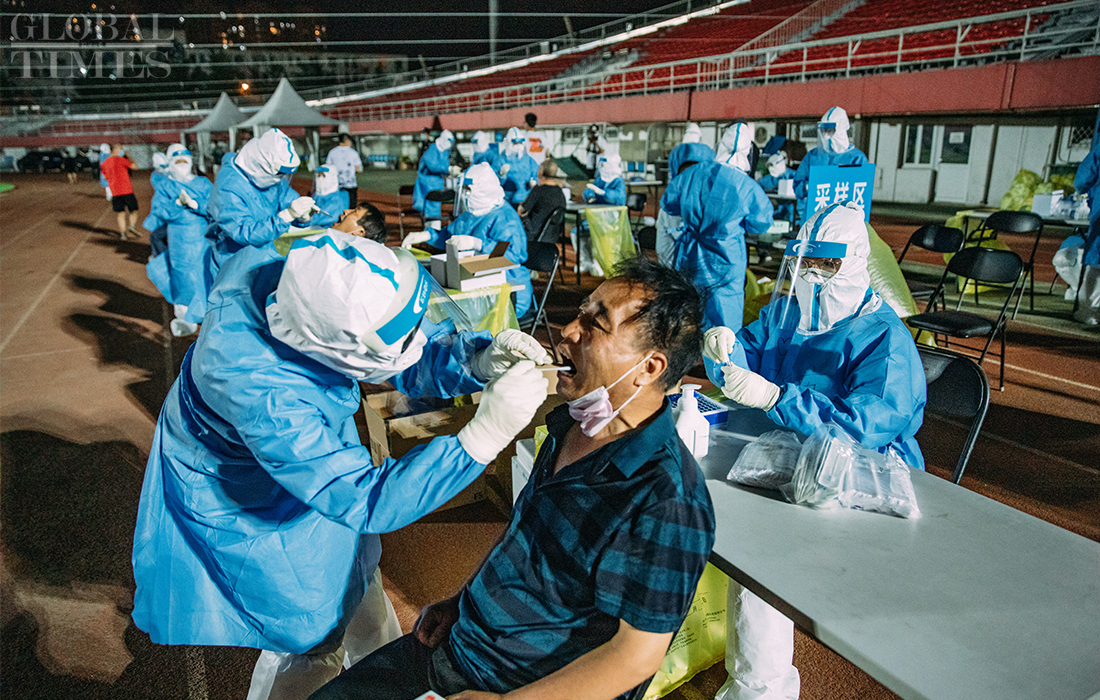False negative 'inevitable': expert
Source:Globaltimes.cn Published: 2020/6/22 0:21:34

Photo: Li Hao/GT
A Chinese national health expert said Sunday that false negative results for the coronavirus are "inevitable" as the tests can be affected by how long the patient has been infected, methods of collecting a sample and whether the person collecting the sample follows procedures. His comments come after a nurse in Beijing who tested negative on Wednesday but was confirmed to have been infected with COVID-19 the next day.
Nucleic acid testing is the standard test for virus infection, said Li Jinming, a research fellow of the National Center for Clinical Laboratories, who noted that some false positives may be caused by residual contamination.
"False negatives are inevitable as it depends on the timing of the collected sample, the sampling methods and whether the person doing the sampling is up to standard," Li said, noting that "false negatives may occur during the late incubation period or the early stage of the disease."
Close contacts of an infected person who test negative should still be quarantined and tested again, Li said.
The comments came following an emergency nurse at Peking University International Hospital was confirmed to have been infected with the coronavirus on Thursday, after she had tested negative on Wednesday, triggering public concern over the accuracy of the testing result. It's not known if the nurse returned to work between the two tests.
Gao Zhancheng, head of the respiratory medicine department, said that false negatives are inevitable and the accuracy of the testing result is affected by the severity of the patient's disease, different stages of the disease, sampling methods and laboratory testing conditions.
"The accuracy of nucleic acid tests is not 100 percent currently," said Lin Minggui, director of the infectious diseases department at Tsinghua University Affiliated Beijing Tsinghua Changgung Hospital. Lin said that during the early outbreak many patients received nucleic acid tests up to six times before finally testing positive.
Lin said the accuracy of nucleic acid tests can be impacted by the quality of the sample, from which part of the body the sample was taken, the time it takes to complete analysis, and the competence of personnel.
RELATED ARTICLES:
Posted in: SOCIETY